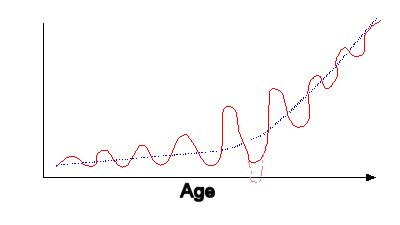When I was in college and things were not going well I would drink excessively and ended up with a number of lost weekends. My troubles were rarely over classes and nearly always over girls, which carried over into my studies, which carried over into every waking minute, and, well, you get the picture. I wax nostalgic when I think about how hard I had it (I did not have it hard at all).
The same sort of thing happened again around the time I was 26, and once more I found myself drinking way too much, and started contemplating suicide. Surely almost everyone, at some time in their lives, contemplates suicide. I knew exactly how it would be done: alcohol poisoning. It would have been only a small leap to go from drinking heavily to chugging one or two bottles of vodka; I’m sure I could have downed them before passing out for the last time.
I was never foolish or perhaps brave enough to go through with it but the thoughts of suicide and my general funk back then made me realize that once you overcome the fear of death, making the leap into it would not be hard.
An alumnus from my son’s (and my) university took that leap this past week. He climbed to the top of the stairway in the tallest building on campus (nine floors), stepped over the abyss, hit his head on the railing at the 5th floor and landed on the fourth. That’s about a 50 foot drop. It would have taken him less than 1 ¾ seconds to do himself in. His speed when he impacted the concrete would have been about 40 mph, more than enough to kill him instantly. Dead in under 2 seconds.
I have this graph that I use to describe the point at which people decide to kill themselves. It’s really simple. It’s a formula that consists of two parameters only: Mental maturity (in blue) and emotional stability (in red). It looks like this:
Emotional stability rides atop mental maturity. Our emotional extremes generally peak in our late teens or early twenties, and by the time we have reached middle age most of us don’t cry as hard, or laugh as much as when we were younger. Our mental maturity (call it the wisdom quotient) grows slowly with time and tends to increase more quickly once we are in our twenties. A low wisdom quotient with large swings in emotional stability leads to problems. I think that people get themselves into trouble when the superposition of emotional stability and wisdom quotient falls below the axis (the light pink curve). That’s when they are most vulnerable to acting on those thoughts of suicide.
I have certainly gone through these extremes and lucky for me, the lowest of my lows was not low enough to put me over the edge. Others are not so lucky and leave this earth in a most unfortunate way. I can only hope that my God understands and forgives them.




 Posted by Paul
Posted by Paul